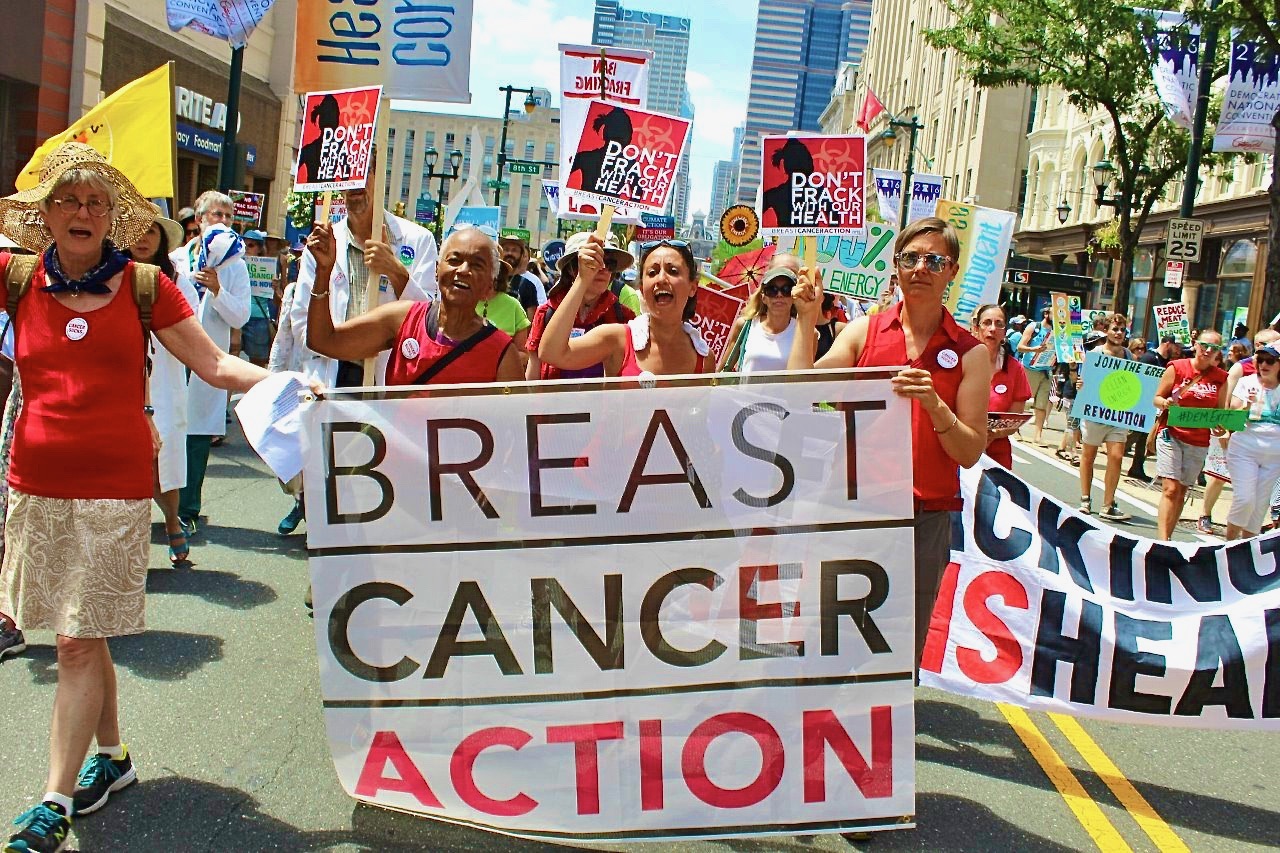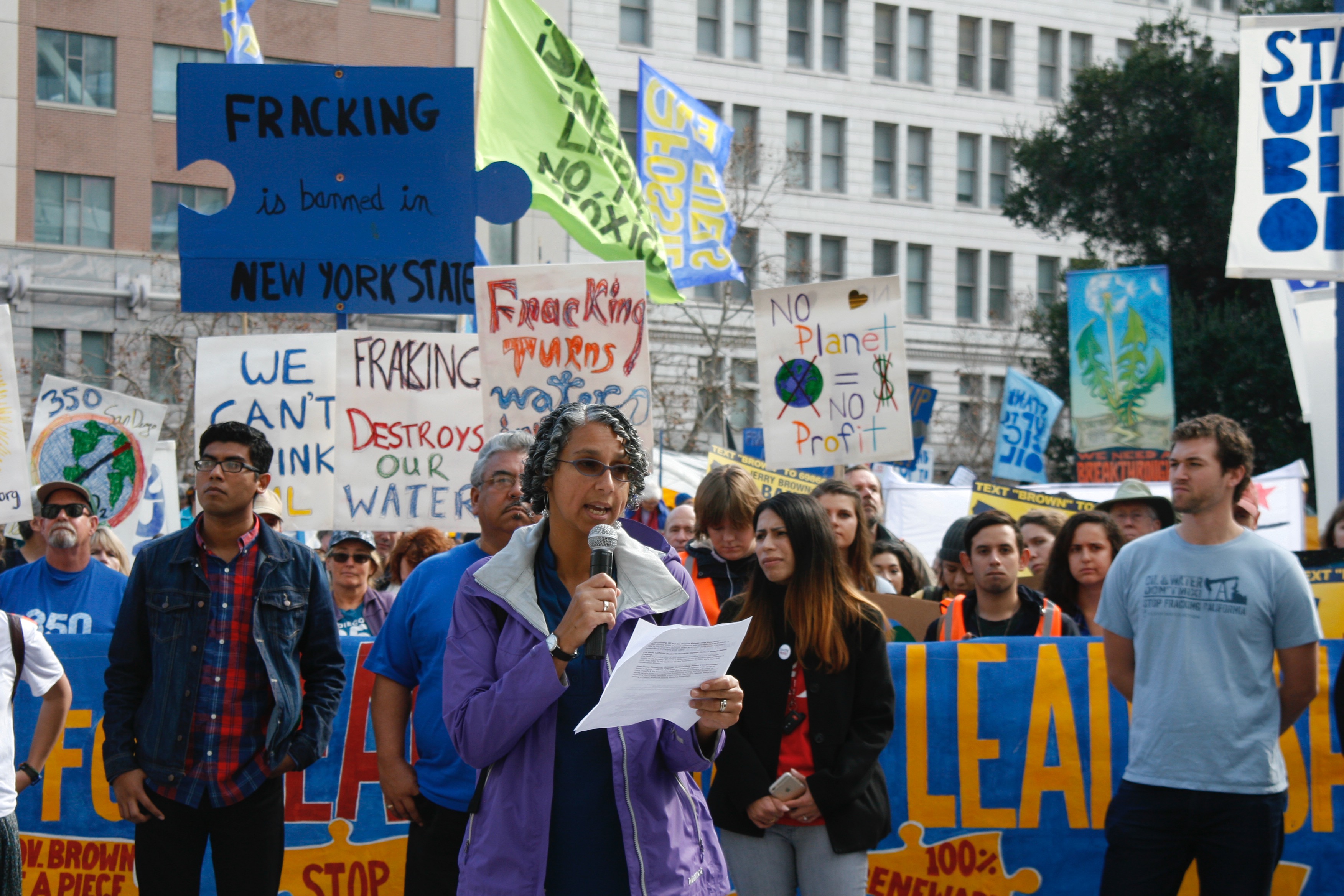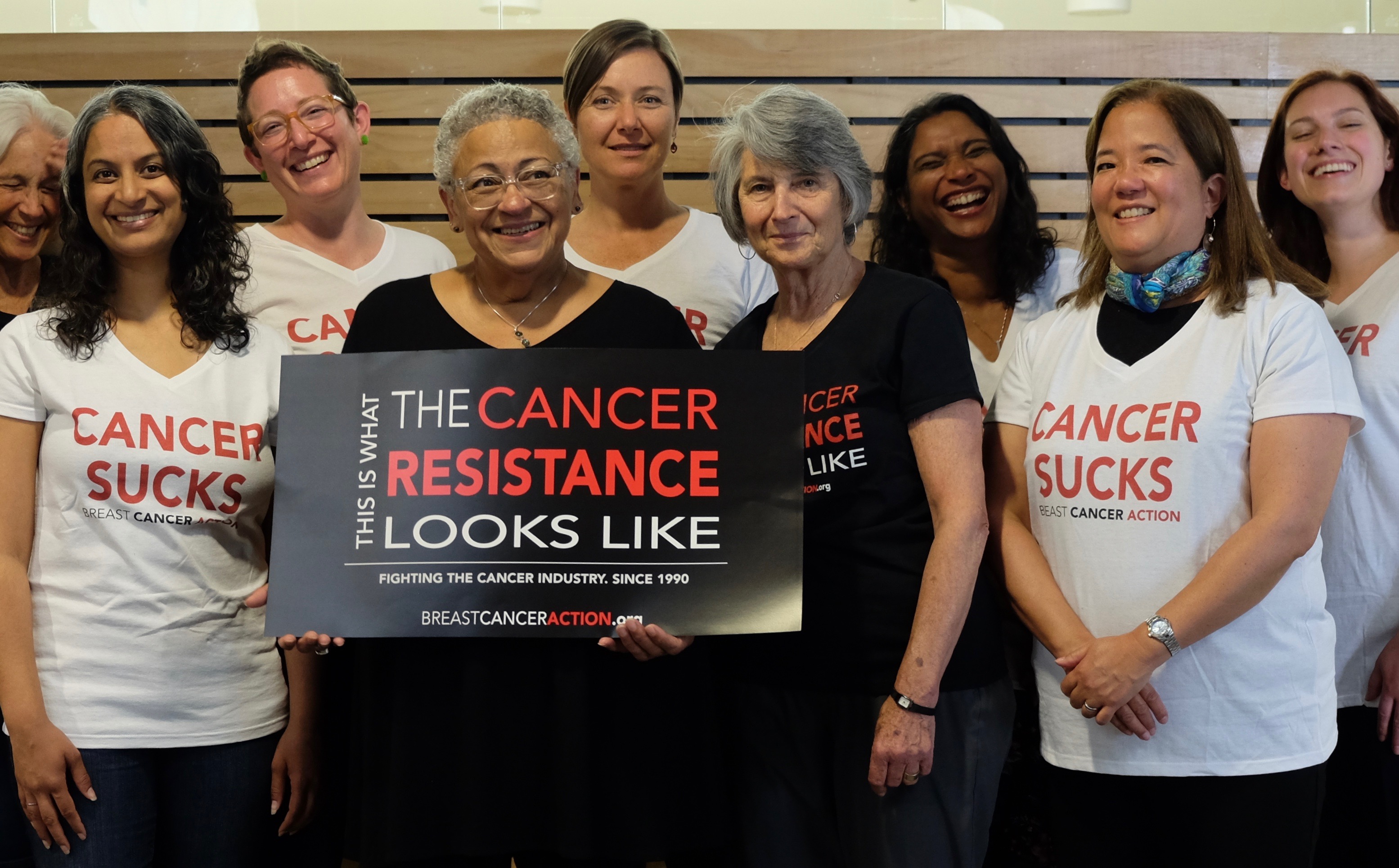At Breast Cancer Action, we pursue large-scale systemic changes that address the root causes of breast cancer and help to eliminate our involuntary exposures to toxins present in our daily lives. We call out corporations and regulatory agencies that allow for the use of toxic chemicals that have been linked to increased risk for breast cancer, including parabens, phthalates <link>, PFAS, and other chemicals that are potentially carcinogenic, interfere with normal hormone function, and/or alter mammary gland development.
In fact, BCAction became the first breast cancer organization to identify parabens as a source of concern related to breast cancer risk in 2003.
Want to know if your products contain parabens? Here are some steps to take:
Currently, the Food and Drug Administration (FDA) does not require testing or approval of any cosmetic products prior to entering the market. Consequently, parabens and other harmful ingredients are regarded as safe for use in cosmetic formulas. The absence of regulatory accountability in this multibillion-dollar industry allows individual companies to market products with ingredients that, as they accumulate in the body, may potentially pose serious health risks, including an increased risk of breast cancer.
We’ve run multiple campaigns targeting cosmetic companies to stop the use of toxic chemicals that are linked to breast cancer risk. We also support legislation to stop exposure to harmful chemicals in products before they reach market, not after people experience the results of lifelong exposure.
To join us in calling for systemic change rather than individual acts of risk reduction, join our mailing list and take action on behalf of all people living with and at risk of breast cancer!


